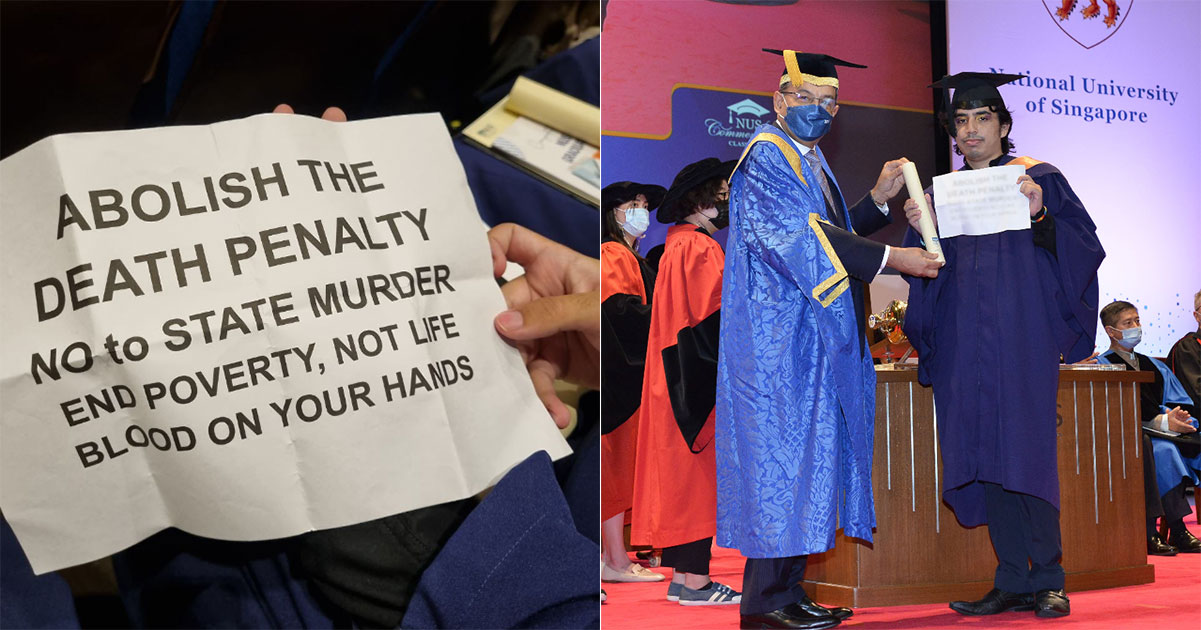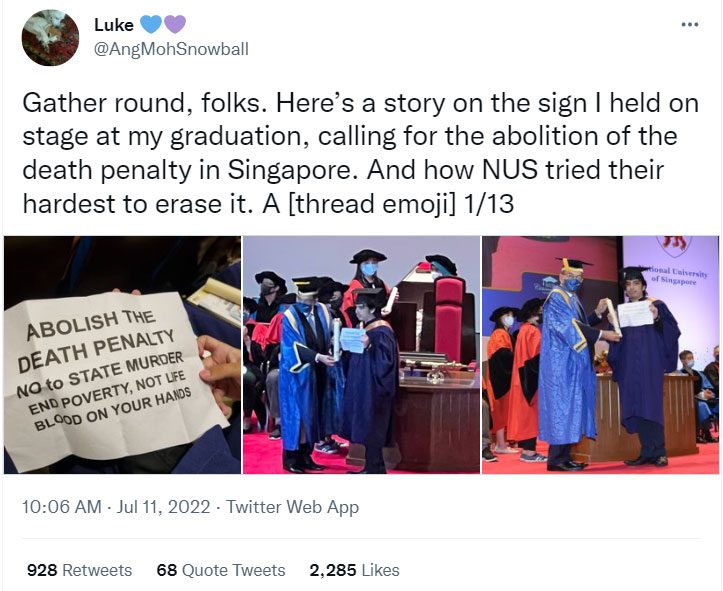Follow us on Telegram for the latest updates: https://t.me/mothershipsg
The Singapore police are looking into a report they received regarding a National University of Singapore (NUS) student who displayed a piece of paper with an anti-death penalty message on it during his graduation ceremony.
The police confirmed with Today that a report was lodged but did not say who made the report or when it was made.
What student did
The student, Luke Levy, 25, posted a series of tweets on Twitter on July 11 regarding his graduation ceremony antics.
He wrote that he brought along a sign with him in his graduation gown pocket, unfolded it, walked on stage, posed for a photo while receiving his degree scroll on stage, and left the stage with the paper with him.
Levy majored in geography.
What sign said
The words, printed in black on a piece of white paper, read: “Abolish the death penalty. No to state murder. End poverty, not life. Blood on your hands.”
What student claimed
The NUS graduate also claimed in his tweets that the video of the ceremony on the NUS YouTube account did not show him walking across the stage with his printed paper.
An official photo he bought of the graduation event even censored the words on the paper, he further claimed.
Levy also claimed in his tweet that death row inmate Kalwant Singh made his last appeal for his life in court before his execution "around the time" of the graduation ceremony.
Singh, 31, a Malaysian, was hanged on July 7, after he was given the death penalty in June 2016 for trafficking heroin.
A day before his hanging, on July 6, he applied to stay his execution in Singapore but the last-minute attempt failed.
What law could he have broken
Lawyers that Today spoke to were divided in their assessment regarding whether there was a violation of the law.
Knowingly holding a public assembly of one person to demonstrate support for or oppose the views or actions of any group of persons or government, publicise a cause or campaign or commemorate an event, can be considered a violation of the Public Order Act, which regulates assemblies and processions in public places, one lawyer argued.
However, it is debatable if NUS could be considered a public space.
Another lawyer said "it really depends on investigations into the whole matter, and not just based on his tweets”.
Top photos via @AngMohSnowball Twitter
If you like what you read, follow us on Facebook, Instagram, Twitter and Telegram to get the latest updates.

